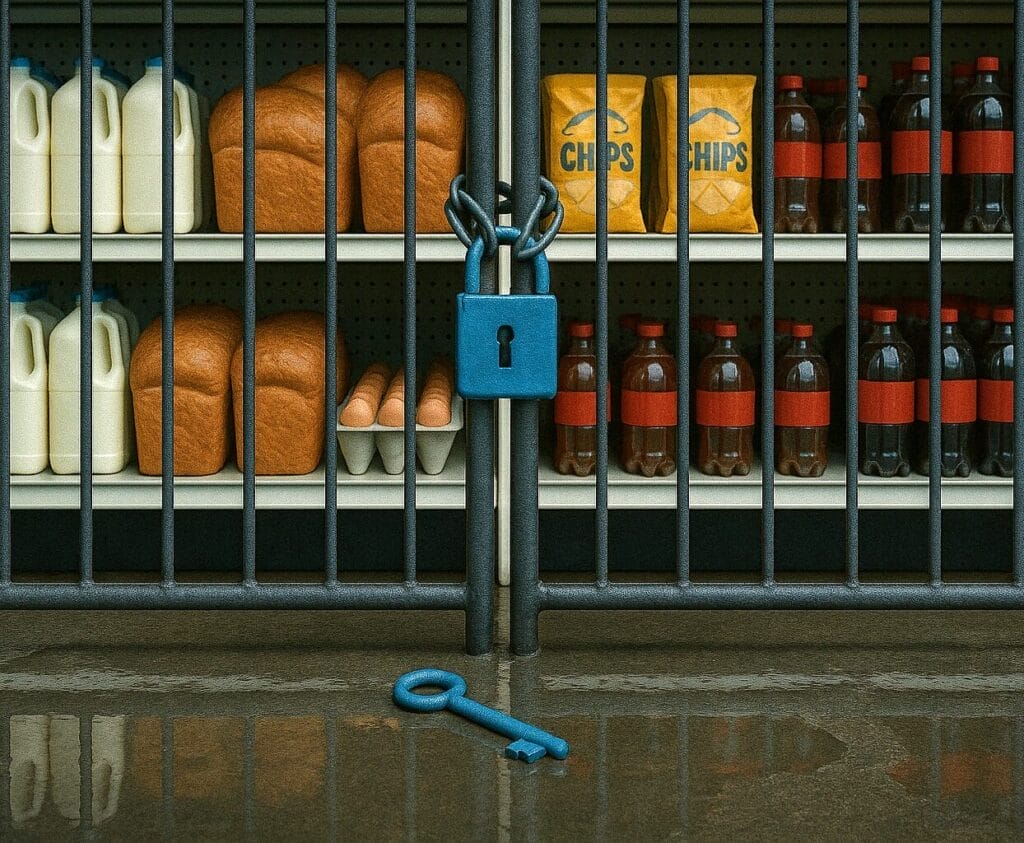Impending loss of FoodShare benefits eclipses unrelated big changes coming Monday
The paradox of a political party wholly invested in growing the social welfare state but refusing to open the government to feed impoverished Wisconsinites ought to be getting more attention, Angela Rachidi says.
“Democrats put themselves in the situation we’re in, and it’s non-winnable,” says Rachidi, a researcher who has written extensively about FoodShare and SNAP at the American Enterprise Institute and the Badger Institute.

“A lot of households are going to be affected in a major way. We should be very concerned about it.”
If the federal government shutdown continues, funding for an estimated 700,000 state residents who use SNAP — the federal Supplemental Nutrition Assistance Program formerly called “food stamps” and branded as FoodShare in Wisconsin — will be suspended at the end of October. They receive an average of $190 a month through FoodShare at a cost of about $1.7 billion a year.
Twenty-five states, including Wisconsin, 23 of them with Democrat governors, and the District of Columbia, filed suit Tuesday demanding to continue SNAP using emergency funds — something President Trump has ruled out. But Democrats across the country, including Wisconsin Gov. Tony Evers, have also supported the federal government shutdown.
The immediate concern over the shutdown, meanwhile, has eclipsed other significant changes coming in the SNAP program built into the One Big Beautiful Bill signed into law on July 4 by Trump, Rachidi says.
Big change coming this Monday
Starting next Monday, all states will require adults through the age of 64 to work at least 80 hours a month or to provide proof of involvement in education, training or volunteering to remain eligible for SNAP benefits. The age limit was previously 54.
The Congressional Budget Office estimates the change in the work requirements will reduce the SNAP rolls nationwide by 2.4 million people in an average month.
Roughly 1 million of those people are able-bodied adults, 18 through 54, who do not live with dependents but who would have received a waiver from work requirements. Another 800,000 will be able-bodied adults through age 64 who do not live with dependent children. And 300,000 will be able-bodied adults ages 18 to 64 who live with children who are age 14 or older, according to the CBO.
Big change coming in 2026 and 2027
FoodShare, Wisconsin’s version of SNAP, is funded primarily with federal tax dollars, but a share of administrative costs are covered by the state. Regardless of what happens short-term, those costs are about to grow.
Beginning on Oct. 1, 2026, Wisconsin taxpayers will shoulder an increase in the annual cost to administer FoodShare. That cost will grow to an estimated $121 million, or 75 percent of the total, compared to $79 million, or 50 percent, in 2024. The remainder is covered by the federal government.
And for the first time ever, to compel states to reduce improper or illegal SNAP transactions, the federal government, beginning Oct. 1, 2027, will require states to contribute to their SNAP budgets if their payment error rates are higher than 6 percent.
Last year, only Idaho and South Dakota had lower payment error rates than Wisconsin’s 4.47 percent in 2024. Based on the 2024 figures, 42 of the 50 states would have made some state taxpayer contribution to SNAP. Nineteen states had double-digit payment error rates.
Where Wisconsin ranks
Wisconsin ranks 31st among the states, with 11.8 percent of the population receiving federal SNAP benefits, according to the U.S. Department of Agriculture. New Mexico, where 21.2 percent of the population gets SNAP, is at the bottom; Utah, at 4.8 percent, is at the top.
Among Wisconsin’s neighbors, Minnesota has the smallest percentage of the population getting SNAP, 7.8 percent, followed by Iowa at 8 percent, Indiana at 8.8 percent, Michigan at 14.5 percent, and Illinois at 15.2 percent, according to the USDA.
Republicans v. Democrats
Evers supports state funding while the shutdown continues, but the Legislature has sole authority to authorize spending, and leaders in the Republican majorities in both chambers have said no.
“My heart goes out to people, but this is a federal issue,” Senate President Mary Felzkowski, R-Tomahawk, said on the Sunday political program Upfront, on WISN-TV in Milwaukee. “And I don’t see the state having the resources to do that.”
Taking away a social program that benefits one in eight Americans will create just the kind of political pressure to change Democrat minds and votes and end the shutdown, Rachidi said.
It’s just a matter of time.
“I think this has all been a political game,” Rachidi says, “but with SNAP the bill is coming due.”
Mark Lisheron is the Managing Editor of the Badger Institute.
Any use or reproduction of Badger Institute articles or photographs requires prior written permission. To request permission to post articles on a website or print copies for distribution, contact Badger Institute Marketing Director Matt Erdman at matt@badgerinstitute.org.




